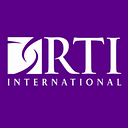COVID-19 Brings Challenges — and Opportunities — in Somalia
By Kaitlin Lesnick, RTI International
Adan Hasan Salad, 25, was one of many youth seeking employment in Somalia, where more than 60 percent of the population is under the age of 25. More than half of the country’s youth face the risk of continued unemployment.
“Finding a job in Somalia is really a challenging task in itself,” Adan says. “Here there are no big factories or industries to employ the large number of youth.”
Youth in Somalia are consistently confronted with roadblocks to economic success, influenced by limited educational opportunities, low literacy rates, and weak vocational training systems. Because of this, few young people have the education and skills required to enter the labor market when the time comes.
A Global Pandemic Threatens Progress
Somalia is particularly vulnerable to the new strain of the coronavirus and the socio-economic dynamics associated with it. In an already-strained job market for youth, the global COVID-19 pandemic threatened to shut down businesses, further exacerbating the youth unemployment challenge. In addition, like many locations around the world, Somalia was lacking in several forms of personal protective equipment, or “PPE.”
In May of 2020, as the effects of the pandemic reached Somalia, the United States Agency for International Development (USAID) responded by putting local youth to work in a way that would also help prevent the spread of the disease.
Through the Growth, Enterprise, Employment and Livelihoods (GEEL) Project’s implemented by RTI International, USAID quickly engaged 304 local youth and trained them in basic sewing skills, including how to make non-medical grade protective face coverings that can help slow the spread of COVID-19. As a result of those efforts, on June 9, 2020, USAID completed the handover of 500,000 masks to Somalia’s Ministry of Health for distribution within the local population.
Not only did the USAID-supported youth gain a long-term skill that can help them with future employment prospects, they were also connected with local textile companies who may find use for those skills in the future.
“I am really excited about this training,” says Adan. “It has opened a new door for me. It helped me get an income, and I can now support my family.”
Sustaining the Local Private Sector
Local Somali businesses have also benefited from the effort. “We partnered with USAID in the making of face masks, and we are happy and proud about it,” says Falhado Sheikh Mohamed, manager of the Somali Institute of Social Economy, which offers vocational training in areas such as sewing, cooking, computer repair, electrical installation, and beauty.
“The partnership helped us continue our operations during this difficult time,” Falhado explains. “Without this partnership, we’d not be able to contribute and provide such opportunities for the youth to serve their people and gain an income.”
Businesses can have job openings primed for youth, but the mismatch of youth skills and business needs often results in a pool of under-qualified candidates. Through the mask-making effort, USAID partnered with six Mogadishu-based businesses for training, networking, and job placement.
“It’s important to empower the youth through gainful skills,” Falhado says. “It helps them become independent and build a future for themselves. A jobless youth is vulnerable to engage in unlawful activities. For Somalia to move forward, we need to create jobs and opportunities for the youth through vocational trainings.”
A Promising Future
Through GEEL’s youth skills development activities, USAID plans to create more than 1,000 new job opportunities for Somali youth by helping them develop the skills they need to succeed in today’s global economy. In partnership with leading private sector companies, the program is committed to engaging youth in innovations in the agriculture, fisheries, livestock, and energy sectors.
As for Adan Hasan Salad, the experience making masks to protect his fellow citizens has left him feeling inspired.
“I am grateful to USAID for the training,” he says. “It has surely empowered me and many others. We hope this continues and more jobless youth get an opportunity.”
In the future, Adan says he wants to advance his skills and eventually venture into the textile business, an effort he hopes will provide employment to others and contribute to his vision to “build a better Somalia.”
Yussuf Ali from the USAID GEEL Project contributed to this story.
